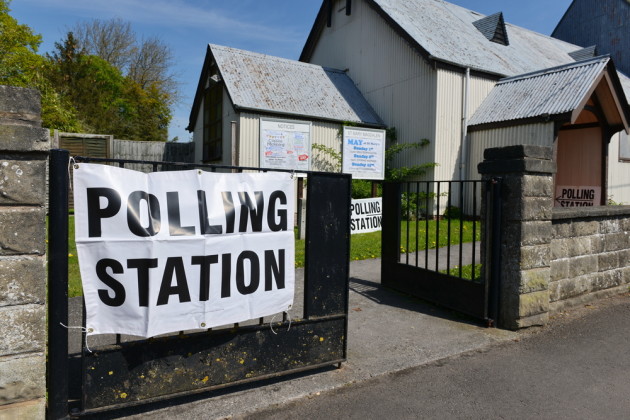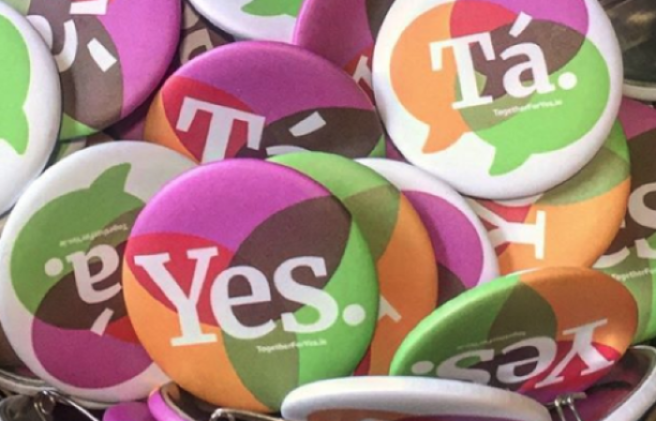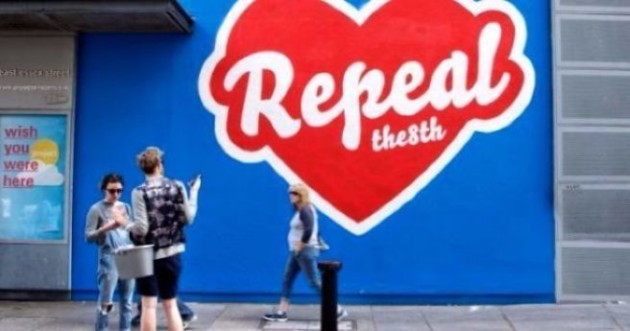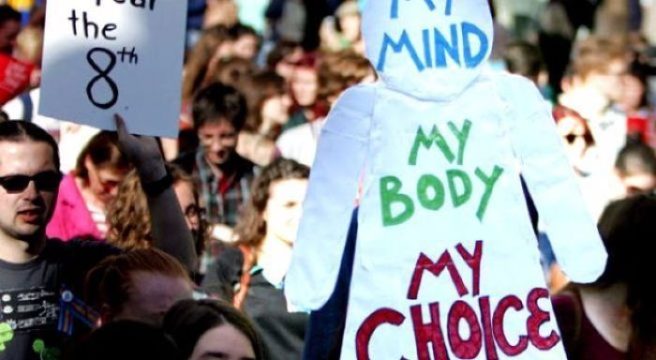By Colleen Brady
It’s only a matter of weeks before Ireland makes a decision on whether or not the 8th Amendment will be repealed.
The 8th amendment in the Irish constitution at the moment states that the mother and unborn have equal rights.
However, repealing the 8th amendment will mean Women in Ireland will be allowed have abortions in this country without it being a criminal offence.
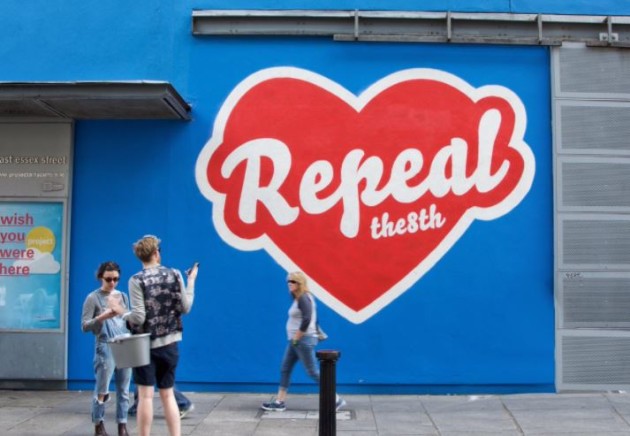
For some, the 8th amendment protects the unborn but for others it’s a restriction which puts the rights of a woman against the right to life of the unborn.
It’s an issue of contention and a matter of great confusion for many. The 8th amendment was introduced in 1983. At this time abortion was illegal in Ireland but the amendment engraved it into national policy.
According to a 2016 report from the UK Department of Health, 3,265 Irish women travelled to the UK seeking abortions.
To repeal or not? The problem with the debate is that both sides obviously feel so passionately about it that those in the middle, who aren’t sure how they feel are not given an opportunity to talk.
What if you are unsure, which is the case of a large number of people in Ireland?
At the minute I feel as though there is no unbiased information readily available for the public. From where I am looking, the information available to people is either swayed one way or another.
The people delivering information about the 8th are largely saying what you are if you are not voting a specific way instead of providing accurate information to all age groups and all sexes.
Information which displays the two sides fairly, what will happen if there is a change in our constitution and what this means against what will happen if we don’t change the constitution. It’s as simple as that really.
There have been no information brochures with both sides of the debate displayed posted in letterboxes and there is an element of fear mongering from both sides of the campaign.
Young people, in particular, are afraid to vote on the issue for fear of what they will be called or labelled if they vote one way or another on the divisive issue. Of course, emotion sways opinion and the 8th amendment is an emotive subject however, we will not get the voting turn out we want by essentially scaring people into decisions, which is the way I and many other young people feel.
What the state needs to do is make information available for people, so they can understand both sides and form a decision based on unbiased and accurate information and not just statistics or visual posters.
If people understand what is going on and the importance of the issue, they will then turn out to vote.
At the minute a lot of young people aren’t registering to vote because they feel it has “nothing to do with them” or they are simply unsure and in middle ground.
At the end of the day both sides have strong arguments and campaigners, but it is the people in the middle who can’t make a decision at the minute because of the limited information, who are most important.
Right now, I feel like it is a good thing even if you are in the middle of the great debate or unsure where you stand on repealing the 8th or supporting it.
This means you are questioning and thinking about it and not simply accepting what either side are saying.
This referendum will continue to make headlines for a long time but information needs to be there for people and not just through shocking figures or emotive posters. People need real information written in a subjective manner to make the decision on something so important.
The repeal campaign should be congratulated for advancing the debate and giving Irish people an opportunity to make a decision in this much needed referendum, no matter what the outcome.
If nothing else, lets be open to hearing both sides and presenting a fair platform for the debate. After all, the large undecided middle ground will be crucial and key to the outcome.












